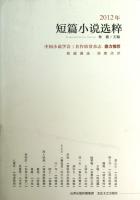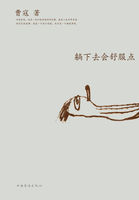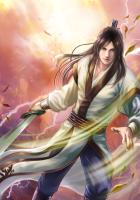First came Egypt. The Duke of Egypt headed it, on horseback, with his counts on foot holding his bridle and stirrups for him; behind them, the male and female Egyptians, pell-mell, with their little children crying on their shoulders; all—duke, counts, and populace—in rags and tatters.Then came the Kingdom of Argot; that is to say, all the thieves of France, arranged according to the order of their dignity; the minor people walking first.Thus defiled by fours, with the divers insignia of their grades, in that strange faculty, most of them lame, some cripples, others one-armed, shop clerks, pilgrim, hubins, bootblacks, thimble-riggers, street arabs, beggars, the blear-eyed beggars, thieves, the weakly, vagabonds, merchants, sham soldiers, goldsmiths, passed masters of pickpockets, isolated thieves.A catalogue that would weary Homer.In the centre of the conclave of the passed masters of pickpockets, one had some difficulty in distinguishing the King of Argot, the Grand-co?sre, so called, crouching in a little cart drawn by two big dogs.After the kingdom of the Argotiers, came the Empire of Galilee.Guillaume Rousseau, Emperor of the Empire of Galilee, marched majestically in his robe of purple, spotted with wine, preceded by buffoons wrestling and executing military dances; surrounded by his macebearers, his pickpockets and clerks of the chamber of accounts.Last of all came the corporation of law clerks, with its maypoles crowned with flowers, its black robes, its music worthy of the orgy, and its large candles of yellow wax.In the centre of this crowd, the grand officers of the Brotherhood of Fools bore on their shoulders a litter more loaded down with candles than the reliquary of Sainte-Geneviève in time of pest; and on this litter shone resplendent, with crosier, cope, and mitre, the new Pope of the Fools, the bellringer of Notre-Dame, Quasimodo the hunchback.
Each section of this grotesque procession had its own music. The Egyptians made their drums and African tambourines resound.The slang men, not a very musical race, still clung to the goat's horn trumpet and the Gothic rubebbe of the twelfth century.The Empire of Galilee was not much more advanced; among its music one could hardly distinguish some miserable rebec, from the infancy of the art, still imprisoned in the re-la-mi.But it was around the Pope of the Fools that all the musical riches of the epoch were displayed in a magnificent discord.It was nothing but soprano rebecs, counter-tenor rebecs, and tenor rebecs, not to reckon the flutes and brass instruments.Alas!our readers will remember that this was Gringoire's orchestra.
It is difficult to convey an idea of the degree of proud and blissful expansion to which the sad and hideous visage of Quasimodo had attained during the transit from the Palais de Justice, to the Place de Grève.It was the first enjoyment of self-love that he had ever experienced.Down to that day, he had known only humiliation, disdain for his condition, disgust for his person.Hence, deaf though he was, he enjoyed, like a veritable pope, the acclamations of that throng, which he hated because he felt that he was hated by it.What mattered it that his people consisted of a pack of fools, cripples, thieves, and beggars?it was still a people and he was its sovereign.And he accepted seriously all this ironical applause, all this derisive respect, with which the crowd mingled, it must be admitted, a good deal of very real fear.For the hunchback was robust; for the bandy-legged fellow was agile; for the deaf man was malicious:three qualities which temper ridicule.
We are far from believing, however, that the new Pope of the Fools understood both the sentiments which he felt and the sentiments which he inspired. The spirit which was lodged in this failure of a body had, necessarily, something incomplete and deaf about it.Thus, what he felt at the moment was to him, absolutely vague, indistinct, and confused.Only joy made itself felt, only pride dominated.Around that sombre and unhappy face, there hung a radiance.
It was, then, not without surprise and alarm, that at the very moment when Quasimodo was passing the Pillar House, in that semi-intoxicated state, a man was seen to dart from the crowd, and to tear from his hands, with a gesture of anger, his crosier of gilded wood, the emblem of his mock popeship.
This man, this rash individual, was the man with the bald brow, who, a moment earlier, standing with the gypsy's group had chilled the poor girl with his words of menace and of hatred. He was dressed in an eccleslastical costume.At the moment when he stood forth from the crowd, Gringoire, who had not noticed him up to that time, recognized him:“Hold!”he said, with an exclamation of astonishment.“Eh!'tis my master in Hermes, Dom Claude Frollo, the archdeacon!What the devil does he want of that old one-eyed fellow?He'll get himself devoured!”
A cry of terror arose, in fact. The formidable Quasimodo had hurled himself from the litter, and the women turned aside their eyes in order not to see him tear the archdeacon asunder.
He made one bound as far as the priest, looked at him, and fell upon his knees.
The priest tore off his tiara, broke his crozier, and rent his tinsel cope.
Quasimodo remained on his knees, with head bent and hands clasped. Then there was established between them a strange dialogue of signs and gestures, for neither of them spoke.The priest, erect on his feet, irritated, threatening, imperious; Quasimodo, prostrate, humble, suppliant.And, nevertheless, it is certain that Quasimodo could have crushed the priest with his thumb.
At length the archdeacon, giving Quasimodo's powerful shoulder a rough shake, made him a sign to rise and follow him.
Quasimodo rose.
Then the Brotherhood of Fools, their first stupor having passed off, wished to defend their pope, so abruptly dethroned. The Egyptians, the men of slang, and all the fraternity of law clerks, gathered howling round the priest.
Quasimodo placed himself in front of the priest, set in play the muscles of his athletic fists, and glared upon the assailants with the snarl of an angry tiger.
The priest resumed his sombre gravity, made a sign to Quasimodo, and retired in silence.
Quasimodo walked in front of him, scattering the crowd as he passed.
When they had traversed the populace and the Place, the cloud of curious and idle were minded to follow them. Quasimodo then constituted himself the rearguard, and followed the archdeacon, walking backwards, squat, surly, monstrous, bristling, gathering up his limbs, licking his boar's tusks, growling like a wild beast, and imparting to the crowd immense vibrations, with a look or a gesture.
Both were allowed to plunge into a dark and narrow street, where no one dared to venture after them; so thoroughly did the mere chimera of Quasimodo gnashing his teeth bar the entrance.
“Here's a marvellous thing, ”said Gringoire; “but where the deuce shall I find some supper?”
Chapter4 The Inconveniences of Following a Pretty Woman through the Streets in the Evening
Gringoire set out to follow the gypsy at all hazards. He had seen her, accompanied by her goat, take to the Rue de la Coutellerie; he took the Rue de la Coutellerie.
“Why not?”he said to himself.
Gringoire, a practical philosopher of the streets of Paris, had noticed that nothing is more propitious to revery than following a pretty woman without knowing whither she is going. There was in this voluntary abdication of his freewill, in this fancy submitting itself to another fancy, which suspects it not, a mixture of fantastic independence and blind obedience, something indescribable, intermediate between slavery and liberty, which pleased Gringoire, —a spirit essentially compound, undecided, and complex, holding the extremities of all extremes, incessantly suspended between all human propensities, and neutralizing one by the other.He was fond of comparing himself to Mahomet's coffin, attracted in two different directions by two loadstones, and hesitating eternally between the heights and the depths, between the vault and the pavement, between fall and ascent, between zenith and nadir.
If Gringoire had lived in our day, what a fine middle course he would hold between classicism and romanticism!
But he was not sufficiently primitive to live three hundred years, and 'tis a pity. His absence is a void which is but too sensibly felt to-day.
Moreover, for the purpose of thus following passers-by in the streets, which Gringoire was fond of doing, there is no better disposition than ignorance of where one is going to sleep.
So he walked along, very thoughtfully, behind the young girl, who hastened her pace and made her goat trot as she saw the bourgeois returning home and the taverns—the only shops which had been open that day—closing.
“After all, ”he half thought to himself, “she must lodge somewhere; gypsies have kindly hearts. Who knows?—”
And in the points of suspense which he placed after this reticence in his mind, there lay I know not what flattering ideas.
Meanwhile, from time to time, as he passed the last groups of bourgeois closing their doors, he caught some scraps of their conversation, which broke the thread of his pleasant hypotheses.
Now it was two old men accosting each other.
“Do you know that it is cold, Master Thibaut Fernicle?”
“Yes, indeed, Master Boniface Disome!Are we going to have a winter such as we had three years ago, in'80, when wood cost eight sous the measure?”
“Bah!that's nothing, Master Thibaut, compared with the winter of 1407, when it froze from St. Martin's Day until Candlemas!and so cold that the pen of the registrar of the parliament froze every three words, in the Grand Chamber!which interrupted the registration of justice.”
Further on there were two female neighbors at their windows, holding candles, which the fog caused to sputter.
“Has your husband told you about the mishap, Mademoiselle la Boudraque?”
“No. What is it, Mademoiselle Turquant?”
“The horse of M. Gilles Godin, the notary at the Chatelet, took fright at the Flemings and their procession, and overturned Master Philippe Avrillot, lay monk of the Celestines.”
“Really?”
“Actually.”
“A bourgeois horse!'tis rather too much!If it had been a cavalry horse, well and good!”
And the windows were closed. But Gringoire had lost the thread of his ideas, nevertheless.
Fortunately, he speedily found it again, and he knotted it together without difficulty, thanks to the gypsy, thanks to Djali, who still walked in front of him; two fine, delicate, and charming creatures, whose tiny feet, beautiful forms, and graceful manners he was engaged in admiring, almost confusing them in his contemplation; believing them to be both young girls, from their intelligence and good friendship; regarding them both as goats, —so far as the lightness, agility, and dexterity of their walk were concerned.
But the streets were becoming blacker and more deserted every moment. The curfew had sounded long ago, and it was only at rare intervals now that they encountered a passer-by in the street, or a light in the windows.Gringoire had become involved, in his pursuit of the gypsy, in that inextricable labyrinth of alleys, squares, and closed courts which surround the ancient sepulchre of the Saints-Innocents, and which resembles a ball of thread tangled by a cat.“Here are streets which possess but little logic!”said Gringoire, lost in the thousands of circuits which returned upon themselves incessantly, but where the young girl pursued a road which seemed familiar to her, without hesitation and with a step which became ever more rapid.As for him, he would have been utterly ignorant of his situation had he not espied, in passing, at the turn of a street, the octagonal mass of the pillory of the fish markets, the open-work summit of which threw its black, fretted outlines clearly upon a window which was still lighted in the Rue Verdelet.
The young girl's attention had been attracted to him for the last few moments; she had repeatedly turned her head towards him with uneasiness; she had even once come to a standstill, and taking advantage of a ray of light which escaped from a half-open bakery to survey him intently, from head to foot, then, having cast this glance, Gringoire had seen her make that little pout which he had already noticed, after which she passed on.
This little pout had furnished Gringoire with food for thought.There was certainly both disdain and mockery in that graceful grimace.So he dropped his head, began to count the paving-stones, and to follow the young girl at a little greater distance, when, at the turn of a street, which had caused him to lose sight of her, he heard her utter a piercing cry.
He hastened his steps.
The street was full of shadows. Nevertheless, a twist of tow soaked in oil, which burned in a cage at the feet of the Holy Virgin at the street corner, permitted Gringoire to make out the gypsy struggling in the arms of two men, who were endeavoring to stifle her cries.The poor little goat, in great alarm, lowered his horns and bleated.
“Help!gentlemen of the watch!”shouted Gringoire, and advanced bravely. One of the men who held the young girl turned towards him.It was the formidable visage of Quasimodo.
Gringoire did not take to flight, but neither did he advance another step.
Quasimodo came up to him, tossed him four paces away on the pavement with a backward turn of the hand, and plunged rapidly into the gloom, bearing the young girl folded across one arm like a silken scarf. His companion followed him, and the poor goat ran after them all, bleating plaintively.
“Murder!murder!”shrieked the unhappy gypsy.
“Halt, rascals, and yield me that wench!”suddenly shouted in a voice of thunder, a cavalier who appeared suddenly from a neighboring square.
It was a captain of the king's archers, armed from head to foot, with his sword in his hand.
He tore the gypsy from the arms of the dazed Quasimodo, threw her across his saddle, and at the moment when the terrible hunchback, recovering from his surprise, rushed upon him to regain his prey, fifteen or sixteen archers, who followed their captain closely, made their appearance, with their two-edged swords in their fists. It was a squad of the king's police, which was making the rounds, by order of Messire Robert d'Estouteville, guard of the provostship of Paris.
Quasimodo was surrounded, seized, garroted; he roared, he foamed at the mouth, he bit; and had it been broad daylight, there is no doubt that his face alone, rendered more hideous by wrath, would have put the entire squad to flight. But by night he was deprived of his most formidable weapon, his ugliness.
His companion had disappeared during the struggle.
The gypsy gracefully raised herself upright upon the officer's saddle, placed both hands upon the young man's shoulders, and gazed fixedly at him for several seconds, as though enchanted with his good looks and with the aid which he had just rendered her. Then breaking silence first, she said to him, making her sweet voice still sweeter than usual, —
“What is your name, monsieur le gendarme?”
“Captain Phoebus de Chateaupers, at your service, my beauty!”replied the officer, drawing himself up.
“Thanks, ”said she.
And while Captain Phoebus was turning up his moustache in Burgundian fashion, she slipped from the horse, like an arrow falling to earth, and fled.
A flash of lightning would have vanished less quickly.
“Nombrill of the Pope!”said the captain, causing Quasimodo's straps to be drawn tighter, “I should have preferred to keep the wench.”
“What would you have, captain?”said one gendarme.“The warbler has fled, and the bat remains.”
Chapter5 Result of the Dangers
Gringoire, thoroughly stunned by his fall, remained on the pavement in front of the Holy Virgin at the street corner. Little by little, he regained his senses; at first, for several minutes, he was floating in a sort of half-somnolent revery, which was not without its charm, in which aeriel figures of the gypsy and her goat were coupled with Quasimodo's heavy fist.This state lasted but a short time.A decidedly vivid sensation of cold in the part of his body which was in contact with the pavement, suddenly aroused him and caused his spirit to return to the surface.
“Whence comes this chill?”he said abruptly, to himself. He then perceived that he was lying half in the middle of the gutter.
“That devil of a hunchbacked cyclops!”he muttered between his teeth; and he tried to rise. But he was too much dazed and bruised; he was forced to remain where he was.Moreover, his hand was tolerably free; he stopped up his nose and resigned himself.
“The mud of Paris, ”he said to himself—for decidedly he thought that he was sure that the gutter would prove his refuge for the night; and what can one do in a refuge, except dream?—”the mud of Paris is particularly stinking; it must contain a great deal of volatile and nitric salts. That, moreover, is the opinion of Master Nicholas Flamel, and of the alchemists—”
The word“alchemists”suddenly suggested to his mind the idea of Archdeacon Claude Frollo. He recalled the violent scene which he had just witnessed in part; that the gypsy was struggling with two men, that Quasimodo had a companion; and the morose and haughty face of the archdeacon passed confusedly through his memory.“That would be strange!”he said to himself.And on that fact and that basis he began to construct a fantastic edifice of hypothesis, that card-castle of philosophers; then, suddenly returning once more to reality, “Come!I'm freezing!”he ejaculated.
The place was, in fact, becoming less and less tenable. Each molecule of the gutter bore away a molecule of heat radiating from Gringoire's loins, and the equilibrium between the temperature of his body and the temperature of the brook, began to be established in rough fashion.
Quite a different annoyance suddenly assailed him. A group of children, those little bare-footed savages who have always roamed the pavements of Paris under the eternal name of gamins, and who, when we were also children ourselves, threw stones at all of us in the afternoon, when we came out of school, because our trousers were not torn—a swarm of these young scamps rushed towards the square where Gringoire lay, with shouts and laughter which seemed to pay but little heed to the sleep of the neighbors.They were dragging after them some sort of hideous sack; and the noise of their wooden shoes alone would have roused the dead.Gringoire who was not quite dead yet, half raised himself.
“Oh?Hennequin Dandèche!Oh?Jehan Pincebourde!”they shouted in deafening tones, “old Eustache Moubon, the merchant at the corner, has just died.We've got his straw pallet, we're going to have a bonfire out of it.It's the turn of the Flemish to-day!”
And behold, they flung the pallet directly upon Gringoire, beside whom they had arrived, without espying him. At the same time, one of them took a handful of straw and set off to light it at the wick of the good Virgin.
“S'death!”growled Gringoire, “am I going to be too warm now?”
It was a critical moment. He was caught between fire and water; he made a superhuman effort, the effort of a counterfeiter of money who is on the point of being boiled, and who seeks to escape.He rose to his feet, flung aside the straw pallet upon the street urchins, and fled.
“Holy Virgin!”shrieked the children; “tis the merchant's ghost!”
And they fled in their turn.
The straw mattress remained master of the field. Belleforet, Father Le Juge, and Corrozet affirm that it was picked up on the morrow, with great pomp, by the clergy of the quarter, and borne to the treasury of the church of Saint Opportune, where the sacristan, even as late as 1789, earned a tolerably handsome revenue out of the great miracle of the Statue of the Virgin at the corner of the Rue Mauconseil, which had, by its mere presence, on the memorable night between the sixth and seventh of January, 1482, exorcised the defunct Eustache Moubon, who, in order to play a trick on the devil, had at his death maliciously concealed his soul in his straw pallet.
Chapter6 The Broken Jug
After having run for some time at the top of his speed, without knowing whither, knocking his head against many a street corner, leaping many a gutter, traversing many an alley, many a court, many a square, seeking flight and passage through all the meanderings of the ancient passages of the Halles, exploring in his panic terror what the fine Latin of the maps calls tota via, cheminum et viaria, our poet suddenly halted for lack of breath in the first place, and in the second, because he had been collared, after a fashion, by a dilemma which had just occurred to his mind.“It strikes me, Master Pierre Gringoire, ”he said to himself, placing his finger to his brow, “that you are running like a madman. The little scamps are no less afraid of you than you are of them.It strikes me, I say, that you heard the clatter of their wooden shoes fleeing southward, while you were fleeing northward.Now, one of two things, either they have taken flight, and the pallet, which they must have forgotten in their terror, is precisely that hospitable bed in search of which you have been running ever since morning, and which madame the Virgin miraculously sends you, in order to recompense you for having made a morality in her honor, accompanied by triumphs and mummeries; or the children have not taken flight, and in that case they have put the brand to the pallet, and that is precisely the good fire which you need to cheer, dry, and warm you.In either case, good fire or good bed, that straw pallet is a gift from heaven.The blessed Virgin Marie who stands at the corner of the Rue Mauconseil, could only have made Eustache Moubon die for that express purpose; and it is folly on your part to flee thus zigzag, like a Picard before a Frenchman, leaving behind you what you seek before you; and you are a fool!”
Then he retraced his steps, and feeling his way and searching, with his nose to the wind and his ears on the alert, he tried to find the blessed pallet again, but in vain. There was nothing to be found but intersections of houses, closed courts, and crossings of streets, in the midst of which he hesitated and doubted incessantly, being more perplexed and entangled in this medley of streets than he would have been even in the labyrinth of the H?tel des Tournelles.At length he lost patience, and exclaimed solemnly:“Cursed be cross roads!'tis the devil who has made them in the shape of his pitchfork!”
This exclamation afforded him a little solace, and a sort of reddish reflection which he caught sight of at that moment, at the extremity of a long and narrow lane, completed the elevation of his moral tone.“God be praised!”said he, “There it is yonder!There is my pallet burning.”And comparing himself to the pilot who suffers shipwreck by night, “Salve, ”he added piously, “salve, maris stella!”
Did he address this fragment of litany to the Holy virgin, or to the pallet?We are utterly unable to say.
He had taken but a few steps in the long street, which sloped downwards, was unpaved, and more and more muddy and steep, when he noticed a very singular thing. It was not deserted; here and there along its extent crawled certain vague and formless masses, all directing their course towards the light which flickered at the end of the street, like those heavy insects which drag along by night, from blade to blade of grass, towards the shepherd's fire.
Nothing renders one so adventurous as not being able to feel the place where one's pocket is situated. Gringoire continued to advance, and had soon joined that one of the forms which dragged along most indolently, behind the others.On drawing near, he perceived that it was nothing else than a wretched legless cripple in a bowl, who was hopping along on his two hands like a wounded field-spider which has but two legs left.At the moment when he passed close to this species of spider with a human countenance, it raised towards him a lamentable voice:“La buona mancia, signor!la buona mancia!”
“Deuce take you, ”said Gringoire, “and me with you, if I know what you mean!”
And he passed on.















